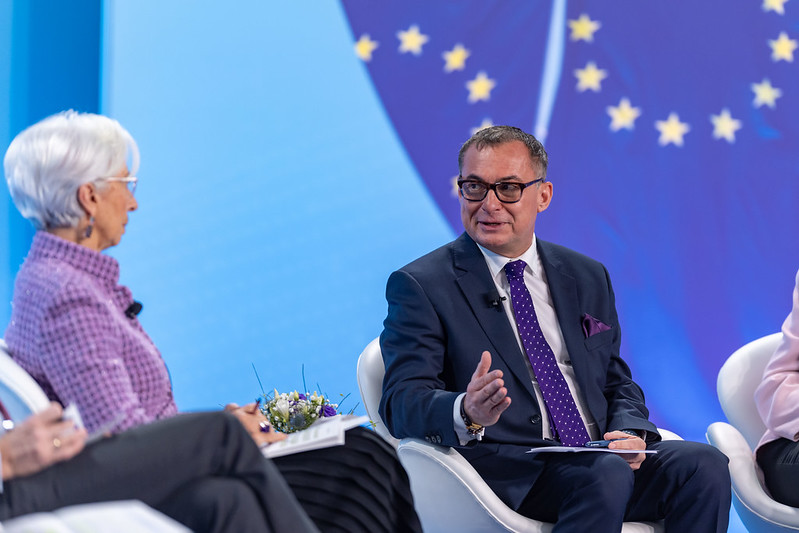By David Barwick – FRANKFURT (Econostream) – European Central Bank Governing Council member Joachim Nagel on Monday said that while new technologies and market entrants bring opportunities to payments and settlement, innovation must not be allowed to weaken central bank money, endanger financial stability or escape regulation.
Opening the Sibos 2025 conference in Frankfurt, Nagel, who heads the Deutsche Bundesbank, said that digitalisation and the rise of fintech and bigtech companies had transformed the payments landscape, with instant payments, tokenised deposits and crypto-tokens among the developments reshaping transaction banking.
“These include fintech and bigtech companies,” he said. “The former often bring superior technological solutions, while the latter have almost unlimited financial power and customer access. Both are able to leap-frog other companies, because they do not have to deal with incumbent IT systems.”
Nagel acknowledged the potential benefits of new technologies, including automation, lower costs and reduced risks. “The vision of a settlement environment where goods and services, information and money flow synchronously may become a reality,” he said.
But he cautioned that risks had to be managed. “We cannot support innovation for innovation’s sake alone,” he said, outlining three “guardrails and guiding principles.”
“The anchor role of central bank money must not be weakened,” he said. “Furthermore, the financial stability must not be endangered … and all financial actors must be subject to proper regulation.”
Large-value payments must continue to be settled in central bank money, potentially via wholesale central bank digital currencies, Nagel said.
New instruments and infrastructures must not create incentives that could trigger bank runs or market volatility, and regulation such as anti-money laundering and counter-terrorist financing rules must apply equally, he said.
Nagel pointed to central banks’ extensive efforts to meet the challenges of innovation, from exploring central bank digital currencies to technical cooperation via the BIS Innovation Hub.
“Many of us are in almost constant exchange with market participants and operators of financial market infrastructures to find the best solutions for the future of transaction banking,” he said.

